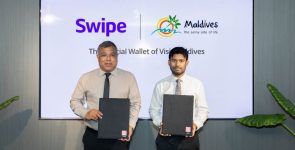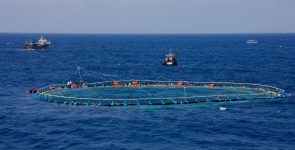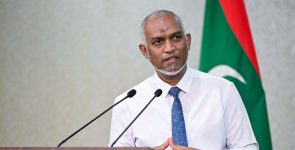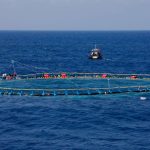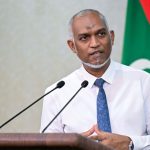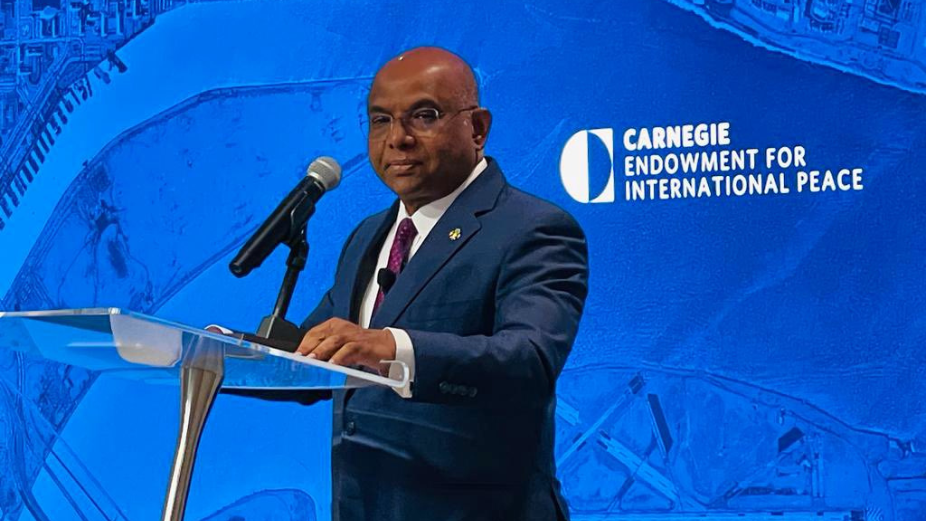
Foreign Minister, Abdulla Shahid shared the perspective of small states like the Maldives on their ability to make a difference in global politics during a speech at the Carnegie Endowment for International Peace. Shahid emphasized the significance of diplomacy and constructive engagement in achieving positive outcomes on the world stage.
Reflecting on the Maldives’ journey as an independent nation, Shahid highlighted their first foreign policy decision: seeking membership in the United Nations. The Maldivian government opted not to engage in any lobbying efforts but instead put faith in the UN system, confident that their application would be assessed on its merits. This decision sparked a debate within the UN Security Council about the ability of “very small states” to fulfil the obligations outlined in the UN Charter. The discussion even led some members to consider the creation of a new membership category for micro-states.
During Shahid’s tenure as the President of the 76th session of the United Nations General Assembly (UNGA), he encountered significant challenges related to the Ukraine war, which had brought the Security Council to a deadlock. Amidst claims that the UN itself was ineffective, small states stood up for the principles enshrined in the UN Charter, particularlyregardingo territorial integrity and the promotion of multilateralism. Shahid emphasized that for small states, multilateralism offers equal footing and an avenue to address violations of the Charter, as these states advocate for themselves and the values they hold.
The Minister of Foreign Affairs also highlighted the Maldives’ efforts in championing human rights and environmental issues. Starting in 2007, their work led to the establishment of the Independent Expert on Human Rights and the Environment in 2012, later renewed as the Special Rapporteur in 2015. Notably, after 15 years of dedicated work, the Maldives played a pivotal role in the declaration of the human right to a clean, healthy, and sustainable environment by the Human Rights Council and the UN General Assembly.
Shahid acknowledged that the cost of engagement is higher for smaller states compared to larger ones due to limited access to insider information, making it more challenging to process vast amounts of data effectively. Nevertheless, the Maldives has prioritized the fight against climate change, positioning itself as a thought leader and bridge builder in this area. For instance, during the recent Conference of the Parties (COP), the Maldives played a crucial role in bridging gaps between countries, leading to a successful conclusion and the establishment of the Loss and Damage Fund. Currently, the Maldives is part of the transitional committee shaping the fund. The country, together with Trinidad and Tobago and Vanuatu, spearheaded the formation of the Alliance of Small Island States (AOSIS), which has become a premier organization focused on climate change.
Maldives has consistently sought to uplift other small countries and advocate for the voiceless in international forums. Early initiatives at the Human Rights Council included establishing a Trust Fund for the Least Developed Countries and the Small Island Developing States. Shahid emphasized that small island developing states (SIDS), which constitute 20 per cent of the UN membership, should not be treated as insignificant or vote banks for others’ agendas. SIDS have their own priorities and are eager to have a seat at the table in every negotiating room, including the Security Council. Shahid expressed support for a dedicated SIDS seat within the Security Council reform negotiations and highlighted the growing support for this proposal.
Shahid emphasized that the Maldives has strived to be a leader in the international community, advocating for its priorities and exercising moral leadership. He highlighted the ability of small states to make a difference, effect change, and lead on global issues.




